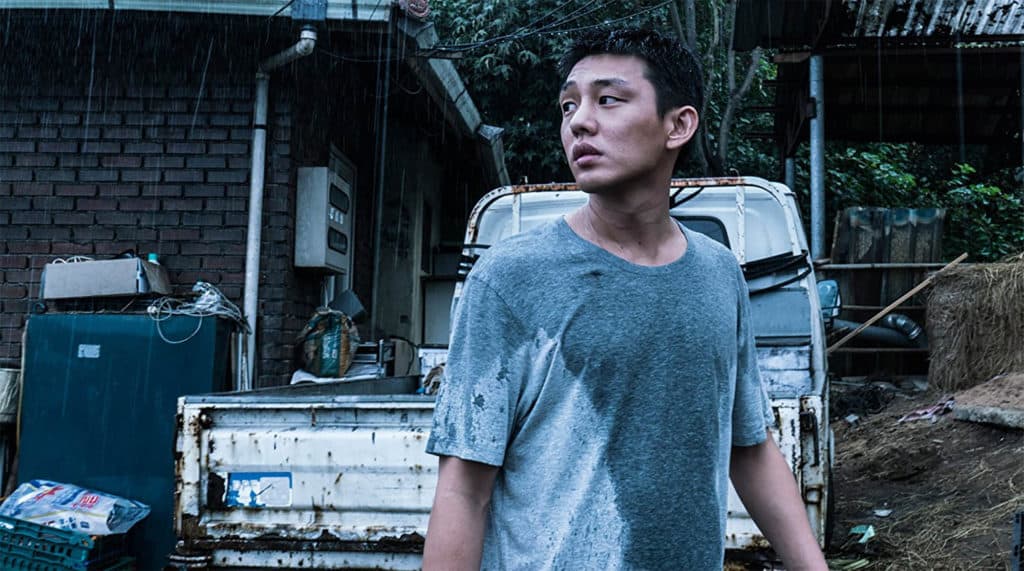
Director: Chang-dong Lee
MPAA Rating: NR
Run Time: 148 Minutes
Embedded into the mysterious allure of Lee Chang-dong’s Burning, a loose Haruki Murakami adaptation that brings to an end an eight-year dry spell for the director, is a distinct and oppressive mood of youthful and economic malaise.
Though fully in service to the film’s enigmatic approach to its central, aloof mystery of a love triangle (of sorts) superseded by an unexplainable disappearance (of sorts) – one that is wrapped up in the layers of interpersonal tension and calculating poeticism – exists this plea for a lost generation displaced by South Korea’s economic turn.
The characters that form the connecting triangle, which turns more sinister the more of themselves they reveal to each other in a mounting game of teased answers as Chang-dong plays with his audience, feel adrift and trapped by their environment to go down the path of tragedy to which they arrive. Though not the most revelatory indictment, the manner through which Burning makes these sensations of loss, paranoia and longing stick permanently in your head is masterful, plain and simple.

Odd-job performer and farm hand Jong-su (Yoo Ah-in) epitomizes this malaise and uncertainty by being the embodiment of wasted youthful aspiration. A writer by trade, with no drafts to speak of and no direction, he flounders in Paju after an incident with his father but manages to reconnect with an equally directionless childhood friend, Hae-mi (Jeon Jong-seo), whose equal loneliness Jong-su responds to eagerly.
Chang-dong wisely refuses to put their dubious relationship into spoken words and lets the silent chemistry of the actors radiate their shared history and speculative affection. As people with no one else to turn to, they balance each other out as one another’s lifelines in a depressing, isolating present.
Complicating this is the introduction of the perplexing Ben (Steven Yeun), an implausibly well off and stoic figure who Hae-mi bonds with while on vacation. Impeccably played by a chastened Yeun in his first great turn in a leading role, Ben is constructed out of equal parts charm and unreadable mystery, and his felt presence between Jong-su and Hae-mi smothers the film in tension.

Something is wrong with this character and with the events that are set in motion when he eclipses the relationship between Jong-su and Hae-mi, but Chang-dong refutes our want to put a finger on it. Burning escalates this feeling, not by raising any stakes per se but by simply leaving its audience to stumble in the dark as it unfolds its doubt-riddled mystery without promising a single answer.
Demonstrating that “stumbling” concept is the utterly incompetent Jong-su mustering up a long-dormant motivation and investigating Ben. This all-encompassing obsession whips the film into a delirious and breathtaking fever pitch that strings you along through long, methodical sequences of pieces slowly falling into place.
As Jong-Su looks into the one thing he knows for sure about Ben, his sociopathic love of burning greenhouses, Chang-dong frames his journey with striking cinematography that beautifully captures the rural desolation of Panju’s farmland and the claustrophobia of Gangnam District’s modernity. Burning continues the director’s streak of emotive, visual splendor wrapped around deeply moving tales of discovery, seen in previous directorial efforts like the elegant Poetry and the tragic Secret Sunshine. Here, there seems to be a detectable elevation in his approach to his aesthetics because certain shots in Burning are capable of stirring you to your core through their delicacy, especially in the way he works with natural lighting.

Burning expectedly ends in tragedy (of sorts) but the director’s refusal to stop playing with his audience’s sensibilities leaves much up unanswered in the film’s rather shocking closing act. What is important is that the film has efficiently imprinted itself on your brain and will remain there to provoke you for sometime after you watch it.
Putting this effect into words is no easy task; it’s a bewilderment of pure construction that beguiles as it confounds, a mystery film with few contemporaries. Chang-dong’s technique of the aloof and mysterious slow-burn, buttressed by moments of poetic and moving expression, make his latest a must-see.






